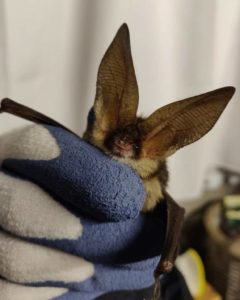Derry City & Strabane District Council and its Green Infrastructure (GI) partners have developed a GI Plan for the district that aims to improve its green and blue spaces. It outlines a new approach that requires a change to the way we think about and value these spaces. It highlights that these areas provide a range of benefits including helping mitigate the impact of climate change, improving public parks, play areas, food growing opportunities and the development of greenways as well as protecting biodiversity and providing a range of ecosystem services. Find out more at https://www.derrystrabane.com/GI
The environment is at the core of what we do and who we are, so much so that when our activity centre was being built in 2000, plans for the city’s first turf roof building were included. In the original plans, management also considered our carbon footprint and sought to include energy efficiency such as underfloor heating and double glazing as well as planning to install wind, biomass and hydroelectric.
Since our environment programme continues to grow, we are keen to promote energy efficiency, renewable energy and biodiversity recovery through various projects including education, events and best practice visits.
To help tackle climate change at a local level, we are working closely with our good friends at Action Renewables to install Solar PV in order to meet our electricity needs. Combined with our turf roof, underfloor heating, biomass boiler and triple glazing, the solar PV will allow us to become a centre of best practice for other organisations to visit and learn how they can benefit from these technologies.
We are already delivering climate change mitigation projects at the park including wetland and sediment pond creation, reed bed creation, invasive species removal and tree planting. Combining these actions will help reduce flooding and run off in heavy rain, particularly in lowland areas.

To investigate the effects of climate change on our wildlife, we carry out citizen science based biodiversity monitoring with the help of volunteers, wildlife partner organisations and Derry City and Strabane District Council’s Green Infrastructure Team. Bats, for example have a strict life cycle throughout the year and rely on the emergence of insects at the same time as the females give birth to their pup. This is to ensure she has enough to eat in order to produce milk. In winter, bats go into torpor during hibernation. To achieve this, they need cold weather. As we start seeing the effects of climate change from extreme heat during the summer months, and warm, wet winters leads to less hibernation; bat populations will decline. This is bad news for us, as bats are important pest controllers. A single pipistrelle can eat over 3000 midges each night. In hotter countries, bats are crucial components of the ecosystem helping to pollinate fruits and flowers and regenerate rainforests. Bats are susceptible to the effects of climate change and present as an ideal indicator species for us to monitor.
